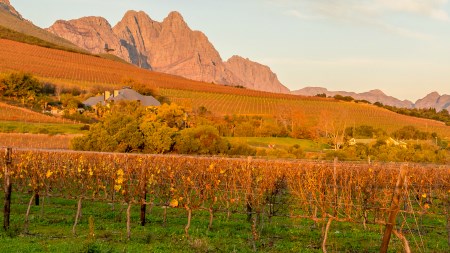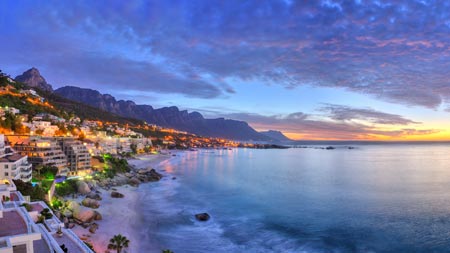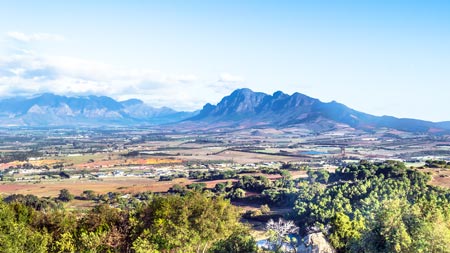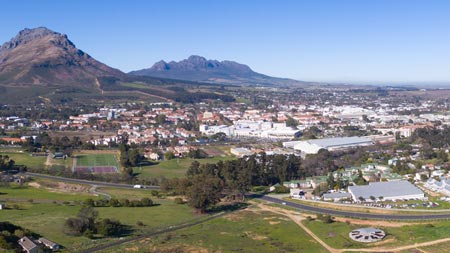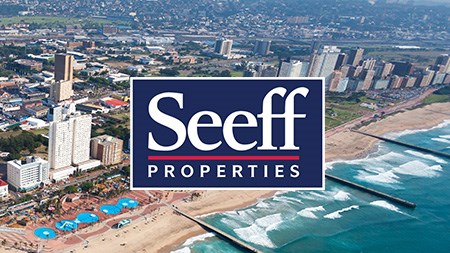The government’s plans to restrict foreign ownership of agricultural land could potentially have a negative outcome on the Cape Winelands and South Africa’s growing tourism sector as a whole.
The beautiful wine farms of the Cape are the source of many legendary wines and other grape related products. The Cape Winelands not only add value to the economy by bringing in foreign currency to the country, but they are also considered a must-see tourist destination for the Cape.
New laws explained
Room for concern does however loom ahead now that the Expropriation Bill is in the works, which allows government to make compulsory purchases of land to speed up redressing racial disparities. In addition to that, is the Land Holdings Bill which will further impose restrictions on foreign ownership of agricultural land in South Africa.
Seeff chairman, Samuel Seeff, says that the effect could be quite adverse insofar as the Cape wine industry is concerned. The Cape’s wine farms are not just agricultural farms, but also a vital part of the growing tourism sector.
Foreign investment
Foreigners have been keen investors in the wine regions of Stellenbosch, Franschhoek, Paarl and Wellington, but they did not just buy farms already in production with top class wine brands, beautiful historic buildings and tourists flocking there, says Seeff.
Much of the development of the wine region was in fact influenced and driven through foreign and corporate investment, which is what empowered the opportunity to transform the Cape wine farms and tourism infrastructure to international standards. This enabled the development of the agricultural sector which paved the way for job creation through skilled and semi-skilled jobs and a host of tourism and economic benefits.
Foreign land ownership
The estimated percentage of all foreign land ownership is said to be around 5%, but is somewhat higher when it comes to wine farms. According to Agri-agent, André Malan, of Seeff Winelands/Boland, foreign investors also bring vital expertise and entrance from overseas markets to the wine industry. He adds that through exporting wine, the farms earn foreign exchange on an ongoing basis which is money that flows into the country.
Stellenbosch is the premier wine region with about 100 wine and wine grape farms of which about 25% (20-plus) are foreign owned. According to Malan, owning wine estates rather than wine farms are popular among foreign owners as the returns on investments are considered higher and many of these owners export a major portion of their wines to their countries of origin.
Franschhoek is one such place that mainly holds wine estates, which produce and market the wine brands that are foreign owned. The area holds around 30% (12-plus) of the more than 40 wine estates and wine grape farms owned by foreign investors. The same can be said for other areas like Paarl and Wellington, where an estimated 30% (23-plus) of the 78-odd wine estates are foreign owned.
Foreign investors undoubtedly play a significant role in boosting the Cape economy through substantial marketing of South African wine, which has become a notable foreign currency earner and isn’t the only component adding value.
With many of the farms considered major tourist attractions, we are also benefiting from the flock of international visitors who purchase in other currencies such as the US Dollar, Euro and British Pound. According to Seeff, foreign ownership per se does not influence the price of agricultural land. Pricing is determined by the market forces of supply and demand. Sellers can achieve a higher price if it is high in demand but limited on the market. Alternately the price is likely to drop if there is a sudden influx of a particular listing in the market.
Aside from affecting the sentiment and appetite of foreigners to invest in the country, a move to force foreigners to sell or expropriating their land, will almost certainly adversely affect the wine industry.
Repercussions of the new law
According to Malan, wine exports stand to be negatively influenced by countries presently buying South African wines such as Germany, the UK, France, the Netherlands and the USA as many of the farms are currently owned by nationals from these countries.
South Africa operates in a global environment and the new law could leave many countries with no choice but to export wine from somewhere else rather than South Africa.
It is said that the domestic wine market won’t sustain the sector, as South Africans are traditional beer drinkers and only produces less than 5% of the world consumption, with a low 8 litres as the per capita consumption. This is a drop in the ocean in comparison to other European wine-drinking countries where more than 20 litres per a person, per a year is consumed.
According to Franschhoek agent, Melina Visser, it is not just the investment into agricultural properties that will suffer, but the perception of general investment in South African property that will also stand to gain a heavy loss. The sale of high end homes in and around Franschhoek could ultimately be damaged by a dip in demand and pricing.
Property interest in the Wineland areas
As the wine and tourism sectors of the Cape continue to develop and evolve with each year, so has the interest in property across the Boland and Wineland areas. One such example, according to Nelia Retief, an agent of Tulbagh, is the Tulbagh valley where many foreign buyers are said to be investing in property and in turn allowing for great economic and job creation benefits.
It’s no secret that the most desirable properties in the country can be found in the Winelands with their prices still faring well in comparison to other top end residential areas, such as the Atlantic Seaboard.
 Sir Herbert Baker Cape Dutch manor house
Sir Herbert Baker Cape Dutch manor house
A rare 48ha wine farm with a beautifully restored 1900s Sir Herbert Baker Cape Dutch manor house, located directly opposite L’Ormarins at the entrance to the Franschhoek Valley, is still somewhat of a snip at R39 million according to agents, Kevin Layden and Esme Wildman. The home is situated in the countryside with a glorious view of the surrounding mountains and the serene Berg River which sustains the acres of vineyards and pear trees situated alongside the home. The property also includes a cottage, a conference room, games centre and a few garages.
Along with Stellenbosch, the Franschhoek/Paarl Valley rank as the country’s most sought-after wine area and it is home to some of the most prestigious wine farm brands such as Babylonstoren, Backsberg, Boschendal, Haute Cabriere and La Motte. According to Layden and Widman, the property can be considered the perfect buy as is, but it holds great potential for expanding into a boutique wine estate or simply developing additional hospitality facilities.
